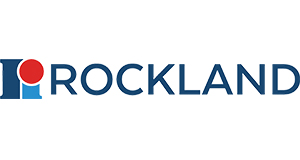rHuman FGF154 basic Protein
rHuman FGF154 basic Protein
SKU
ROC009-001-U84-0010
Packaging Unit
10 µg
Manufacturer
Rockland
Availability:
loading...
Price is loading...
Application Note: Fibroblast Growth Factor 154 basic Recombinant Protein has been tested by biological activity and is suitable as a control for polyclonal or monoclonal anti-Fibroblast Growth Factor 154 basic in immunological assays. Lyophilized from 10 mM sodium phosphate, 75 mM sodium chloride, pH 7.5.
Concentration Value: 0.1 mg/ml
General Disclaimer Note: This product is for research use only and is not intended for therapeutic or diagnostic applications. Please contact a technical service representative for more information. All products of animal origin manufactured by Rockland Immunochemicals are derived from starting materials of North American origin. Collection was performed in United States Department of Agriculture (USDA) inspected facilities and all materials have been inspected and certified to be free of disease and suitable for exportation. All properties listed are typical characteristics and are not specifications. All suggestions and data are offered in good faith but without guarantee as conditions and methods of use of our products are beyond our control. All claims must be made within 30 days following the date of delivery. The prospective user must determine the suitability of our materials before adopting them on a commercial scale. Suggested uses of our products are not recommendations to use our products in violation of any patent or as a license under any patent of Rockland Immunochemicals, Inc. If you require a commercial license to use this material and do not have one, then return this material, unopened to: Rockland Inc., P.O. BOX 5199, Limerick, Pennsylvania, USA.
Other Performance Data: Endotoxin Level: Measured by kinetic LAL analysis and is typically ≤ 1 EU/μg protein. Biologic Activity: The activity is determined by the dose-dependent proliferation of mouse BALB/c 3T3 cells and is typically less than 1 ng/mL.
Physical State: Lyophilized
Purity and Specificity: Hu Fibroblast Growth Factor 154 basic purity was determined to be greater than 97% as determined by analysis by UV-Spectroscopy at 280nm and by reducing and non-reducing SDS-PAGE.
Background: Fibroblast Growth Factors (FGFs) are a 22 member family of proteins known to be involved in angiogenesis, wound healing and embryonic development. As a family, they bind to heparin and signal through four receptor tyrosine kinases called, FGFR1, 2, 3 and 4. Although the mechanism remains unclear, FGF-basic 154, also known as FGF-2, is a critical component in keeping embryonic stem cells undifferentiated in cell culture systems. Recombinant human FGF-b 154 (FGF-2) is a non-glycosylated protein, containing 154 amino acids, with a molecular weight of 17.2 kDa.
Low Endotoxin: Yes
Other: User Optimized
Concentration Value: 0.1 mg/ml
General Disclaimer Note: This product is for research use only and is not intended for therapeutic or diagnostic applications. Please contact a technical service representative for more information. All products of animal origin manufactured by Rockland Immunochemicals are derived from starting materials of North American origin. Collection was performed in United States Department of Agriculture (USDA) inspected facilities and all materials have been inspected and certified to be free of disease and suitable for exportation. All properties listed are typical characteristics and are not specifications. All suggestions and data are offered in good faith but without guarantee as conditions and methods of use of our products are beyond our control. All claims must be made within 30 days following the date of delivery. The prospective user must determine the suitability of our materials before adopting them on a commercial scale. Suggested uses of our products are not recommendations to use our products in violation of any patent or as a license under any patent of Rockland Immunochemicals, Inc. If you require a commercial license to use this material and do not have one, then return this material, unopened to: Rockland Inc., P.O. BOX 5199, Limerick, Pennsylvania, USA.
Other Performance Data: Endotoxin Level: Measured by kinetic LAL analysis and is typically ≤ 1 EU/μg protein. Biologic Activity: The activity is determined by the dose-dependent proliferation of mouse BALB/c 3T3 cells and is typically less than 1 ng/mL.
Physical State: Lyophilized
Purity and Specificity: Hu Fibroblast Growth Factor 154 basic purity was determined to be greater than 97% as determined by analysis by UV-Spectroscopy at 280nm and by reducing and non-reducing SDS-PAGE.
Background: Fibroblast Growth Factors (FGFs) are a 22 member family of proteins known to be involved in angiogenesis, wound healing and embryonic development. As a family, they bind to heparin and signal through four receptor tyrosine kinases called, FGFR1, 2, 3 and 4. Although the mechanism remains unclear, FGF-basic 154, also known as FGF-2, is a critical component in keeping embryonic stem cells undifferentiated in cell culture systems. Recombinant human FGF-b 154 (FGF-2) is a non-glycosylated protein, containing 154 amino acids, with a molecular weight of 17.2 kDa.
Low Endotoxin: Yes
Other: User Optimized
| SKU | ROC009-001-U84-0010 |
|---|---|
| Manufacturer | Rockland |
| Manufacturer SKU | 009-001-U84-0010 |
| Package Unit | 10 µg |
| Quantity Unit | STK |
| Conjugate | Unconjugated |
| Product information (PDF) | Download |
| MSDS (PDF) |
|

 Deutsch
Deutsch










